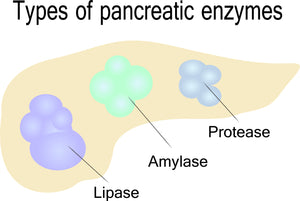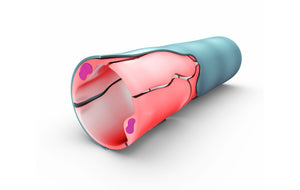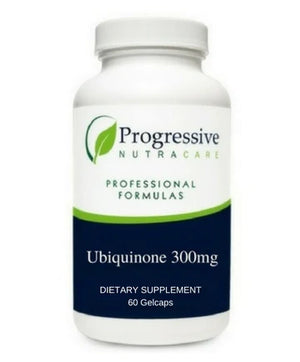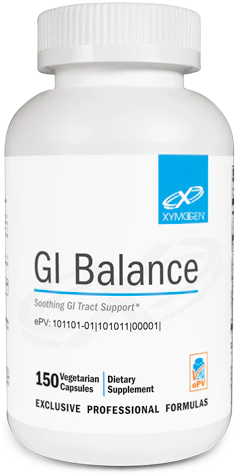What are the Adrenal Glands and Why Are They So Important?

The adrenal glands are small glands located on top of both kidneys and are part of the endocrine system. The human body has two adrenal glands and these small glands produce over 50 hormones that regulate various bodily functions that help the body control blood sugar, burn protein and fat, and help your body to react to stressor such as injury or major illnesses and disorders. The most important of these hormones are cortisol, aldosterone, and androgens.
Aldosterone is a type of mineralocorticoid produced in the adrenal cortex and is essential for sodium and water conservation and balance in the kidneys, salivary glands, sweat glands and colon. It also plays a central role in the regulation of blood pressure via control of plasma sodium and potassium ion levels. When this crucial hormone is depleted or dysregulated, it can lead to the progression of cardiovascular and renal diseases.
Cortisol is a steroid hormone produced in the adrenal cortex. When released into the bloodstream, cortisol is crucial in helping your body to respond to stress and danger, upregulate your body’s metabolism of glucose, controls your blood pressure, and reduces inflammation. It quite literally is central to your body’s ability to mount a physiological response to stressors, both real and perceived. Most people know cortisol by its involvement in the fight or flight mechanism.
Androgens are another class of hormones produced by the adrenal glands. These are essential to your body’s early development and sexual functions, especially in men. Types of androgens are DHEA and Testosterone. Pregnenolone is another hormone among this class that are precursors to various hormones, including DHEA and testosterone mentioned above, as well as progesterone and estrogen. Healthy hormonal balance relies heavily on adrenal output.

Key Takeaway:
The adrenals are small but pack a big punch. Proper functioning adrenal glands are a crucial component of health and wellness. The body does not operate at peak performance without healthy adrenal function.
What Is Stress?
Stress is something that we all experience, often and daily. We all talk about it, we all feel it, and we all suffer from it. But what is stress? Stress can best be described as a state of threatened homeostasis or disharmony. Homeostasis is a physiologic state of balance that is susceptible to a range of stressors, both intrinsic and extrinsic and both real or perceived.
Stress then is the hay and homeostasis is the camel’s back. As we add more and more stressors, we tend to break our homeostatic balance.
The stress response is a physiologic mechanism for survival. It allows us to respond and adapt to a wide range of threats. Sometimes these threats are emotional, sometime physical. Cortisol production is the core component of the stress response. As we experience stress, our body responds by increasing cortisol production. Cortisol, in turn, increases your body’s metabolism of glucose, controls your blood pressure, and reduces inflammation; all critical mechanisms that allow your body to respond to a real or perceived danger. Simply put, our stress response regulates our survival mechanisms.
The stress response has both a surveillance functions that allows us to asses internal and external threats and an effector function that allows us to manage metabolic resources to respond to the threat. It is when this mechanism is out of balance, sustained and persistent, that can lead to adrenal fatigue.
What is Adrenal Fatigue?
Adrenal Fatigue is a condition coined by Dr. James Wilson in the 1990’s. Adrenal fatigue is a condition where the adrenal glands chronically function below the necessary levels needed to sustain optimal functions like those listed above. Adrenal fatigue is most often associated with prolonged exposure of stress. This stress most often times is intense levels of stress but can be milder for some individuals. The condition can also be caused by acute illnesses such as influenza, bronchitis, or pneumonia.
True to its name, the hallmark symptom is fatigue that sleep does not seem to relieve and does not have a readily identifiable cause. Stress is an unavoidable part of many people’s lives. Many times, we are not even aware of the stress that either they or others have placed on them. Stress can come in many forms, such as physical stress, emotional stress, psychological stress. Stress can come from within us or from our environment and surroundings.
People who suffer from adrenal fatigue may act or look normal and there may not be any obvious signs of physical illness. As Dr. Wilson describes its “people who suffer from Adrenal Fatigue that may live with a general sense of un-wellness, tiredness, or grey feeling." Individuals with adrenal fatigue many times need caffeine in the morning to get going and to keep them awake during the day. In the extreme cases, individuals may have a hard time just getting out of the bed and can only do light physical activity such as cleaning for a few hours without rest.
Despite millions of people suffering with this condition in the US, conventional medicine does not recognize this as a distinct diagnosable syndrome. The syndrome can be best summarized as sub-clinical adrenal insufficiency.
Key Takeaways: Adrenal fatigue is a condition characterized by underperforming or “sluggish” adrenal function typically caused by prolonged exposure to stress. The implications can be mild for some and extreme for others. Left untreated, it can have profound effects on many biological functions, including carbohydrate, fat, and protein metabolism, electrolyte balance, heart and cardiovascular functions, as well as your sex drive.
How do you treat adrenal fatigue?
Integrative medical practitioners are able to evaluate and asses a patient for stress related conditions such as adrenal fatigue. The most prevalent way to clinically evaluate a patient is through salivary cortisol tests. The tests are designed to measure cortisol at regular intervals throughout the day. This gives clinicians a baseline measurement of a patient’s adrenal picture.
Now that we know what adrenal fatigue is, now what? Most treatment interventions should include factors such as dietary and lifestyle modifications, rest, light exercise, and nutritional supplementation.
Stress Reduction
It’s important to maintain balance in our lives. Our fight or flight mechanisms, or sympathetic response, are important for survival but can become out of balance. If we bring ourselves back into balance we can stimulate parasympathetic tone. It’s important to focus on ourselves, to relax, and focus on deep breathing. Also, detaching from electronics and spending more quality time with our loved ones can greatly reduce anxiety and promote a healthier well-being.
Light Exercise
Doing light movements such as yoga, walking, stretching and light cardio are great ways to reduce stress and strengthen your adrenals. It is important to not overdue your exercises. Know your body and start with low strenuous activity and build from there. Use qualified physical trainers and recommendations from your physician to assist.
Rest
Sleep is a critical component to helping your body to adapt to stress. You should strive for 8-9 hours of high quality and restful sleep. Sometimes an afternoon nap is appropriate to give your adrenals a rest. Sometime, it’s unwise to push through those sleepy times. A quick 15-30 minute nap can give your adrenals a rest.
Avoid caffeine
We all tend to aver indulge on caffeine. There is a lot of data to suggest organic coffee can be a great source of antioxidants and may decrease your risk of heart disease and diabetes. While this is true, caffeine can overstimulate your adrenal glands. People suffering with adrenal fatigue should avoid caffeine early in their treatment efforts.
Dietary modifications
When we talk about inflammatory foods, we are referring to an immune reaction that your body elicits when you consume certain foods. Your body sees certain food particles in your blood stream and mounts an immune reaction. A low inflammatory diet is important for adrenal disorders. Removal of the big 4: dairy, gluten, soy, and corn can reduce inflammation in your body and remove additional stress to your adrenals. However, the elimination diet is not just about these big 4. Many foods we eat daily may be inflammatory. Your physician can run a food allergy assay that tests your blood against everyday foods such as fish or broccoli. Often times, common foods that we eat everyday can actually elicit an immune reaction. Identifying and removing these foods is a key component.
Additionally, adding foods into your diet that are high in vitamin C (citrus, bell peppers, papaya) and vitamin B6 (sunflower seeds, eggs, poultry) provide your adrenals with extra nutrient support.
Nutritional supplements
Nutritional supplements are a fantastic way to jump start your adrenal health. Herbal extracts are a great way to support the adrenals. Other nutrients such as Vitamin B6 and Vitamin C are crucial but we typically don’t get sufficient therapeutic doses from an average diet.
Vitamin C acts as a critical cofactor in numerous reactions in the adrenal cortex. In fact, the adrenal glands have the highest tissue concentrations and the highest active uptake of Vitamin C (Ascorbic Acid). This reveals how important this nutrient is to adrenal function. In one study involving the study of extreme exertion of “ultramarathon” runners, athletes were given Vitamin C supplement of 1500mg per day, for 7 days prior to running, compared to the control group that received none. Post-race measures of plasma revealed, as expected, significant increases in inflammatory cytokines and cortisol in all athletes except for those that supplemented with Vitamin C.
Vitamin B6 is another important cofactor in important adrenal function. Biochemically, many of the metabolic pathways used to synthesize and secrete adrenal hormones, such as cortisol and DHEA, use Vitamin B6. This nutrient is typically included in most adrenal support formulas.
Adrenal glandular extracts have a long history, across multiple cultures, for their healing properties. The concept is simple, dietary consumption of animal derived adrenal glands will support the adrenal glands of humans. Desiccated adrenal gland powders, which are the most common source of dietary adrenal tissue, are not standardized to contain a specific hormone or peptide. Individuals who supplement with Adrenal Glandular extracts typically report better energy and sleep cycles’ as well as a decreased susceptibility to stress. Adrenal extracts should be sourced from cows in countries where Bovine spongiform encephalopathy (BSE) are not known to occur. Examples of these countries are Argentina and New Zealand, both known for high quality glandular extracts.
Eleuthero is known as an adaptogen: An adaptogen is any agent, mostly botanical, that have the ability increase resistance to stress. Eleuthero contains a compound known as eleutherosides. Eleuthero extracts have typically been used to improve physical and mental fatigue as well as mental performance under stress.
Schisandra is another adaptogenic extract that has been used to support adrenal functions. Schisandra berries can enhance the body’s natural resistance and adaptation to stress, promote mental endurance, and enhance metabolic efficiency. Schisandra extract is a common component of most adrenal support formulas.
Rhodiola, another adaptogenic herb, is perhaps the most well studied herbal extract for clinical applications. One such study looked at applications of the extract for patient’s complaining of “fatigue symptoms”. Using 4, 144mg tablet daily, study participants noticed a statistically noticeable improvement in their fatigue scores.
Ashwagandha is a popular ayurvadic extract used for adrenal related and stress related conditions. It is considered helpful in improving physical and mental health, and help the body resist and adapt to stress. Many studies exist that evaluate Ashwagandha clinical applications. Most find statistical improvements in anxiety and stress measurements. In one study, subjects with elevated perceived stress were given 300mg twice daily. Compared to the placebo group subjects that received the Ashwaganda extract had highly significant reductions in all subjective measures of perceived stress.
It is important to hear that most of these nutritional supplement therapies do not exist as a “monotherapy”. Instead, they exist in conjunction with other herbal extracts where they can have a synergistic effect. Effective formulas may contain both glandular extracts as well as a blend of adaptogenic herbs. It is also important to have the vitamin co-factors in the formula as well.
Adrenal health is critical for optimal health. Everyday stress, major life events, illness, poor diet, and lack of exercise can all contribute to symptoms of adrenal fatigue. Recognizing your symptoms, identifying the cause, and formulating an action plan for treatment and prevention is obtainable. Consulting with an integrative practitioner is always a good decision to get a comprehensive diagnosis and treatment plan.
- Tags: Conditions
- Joshua Lovern








Comments 0